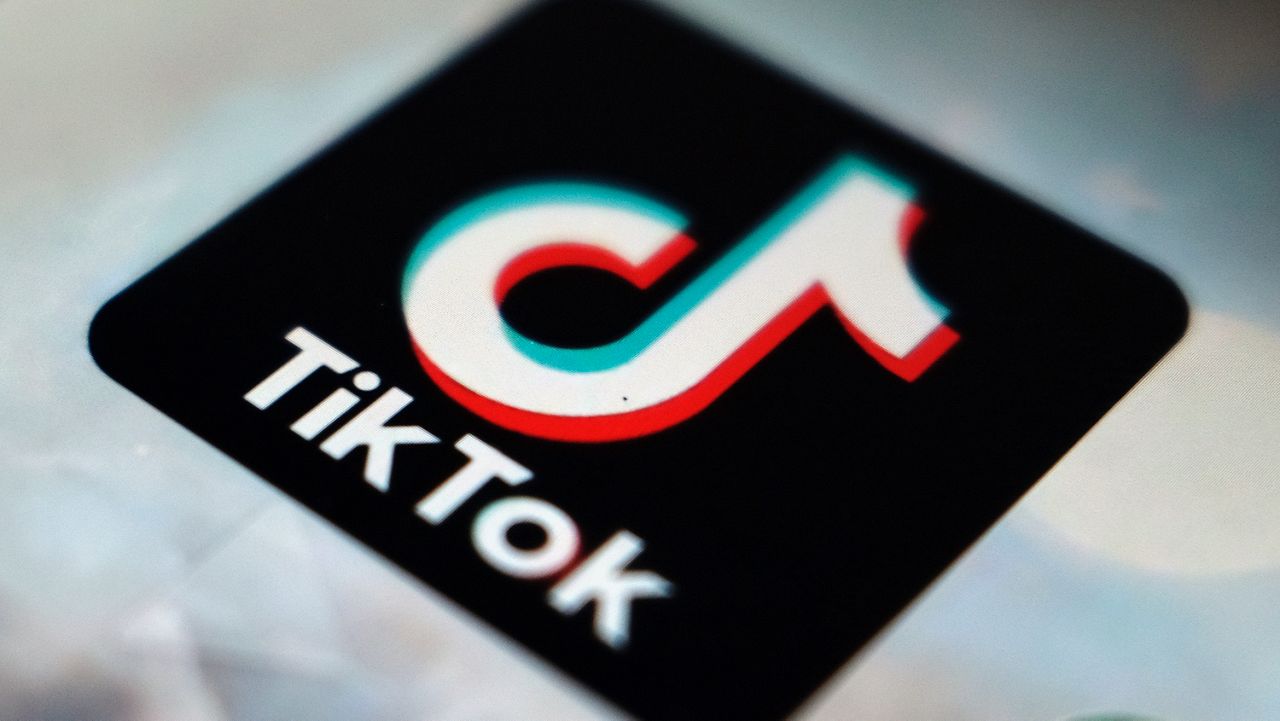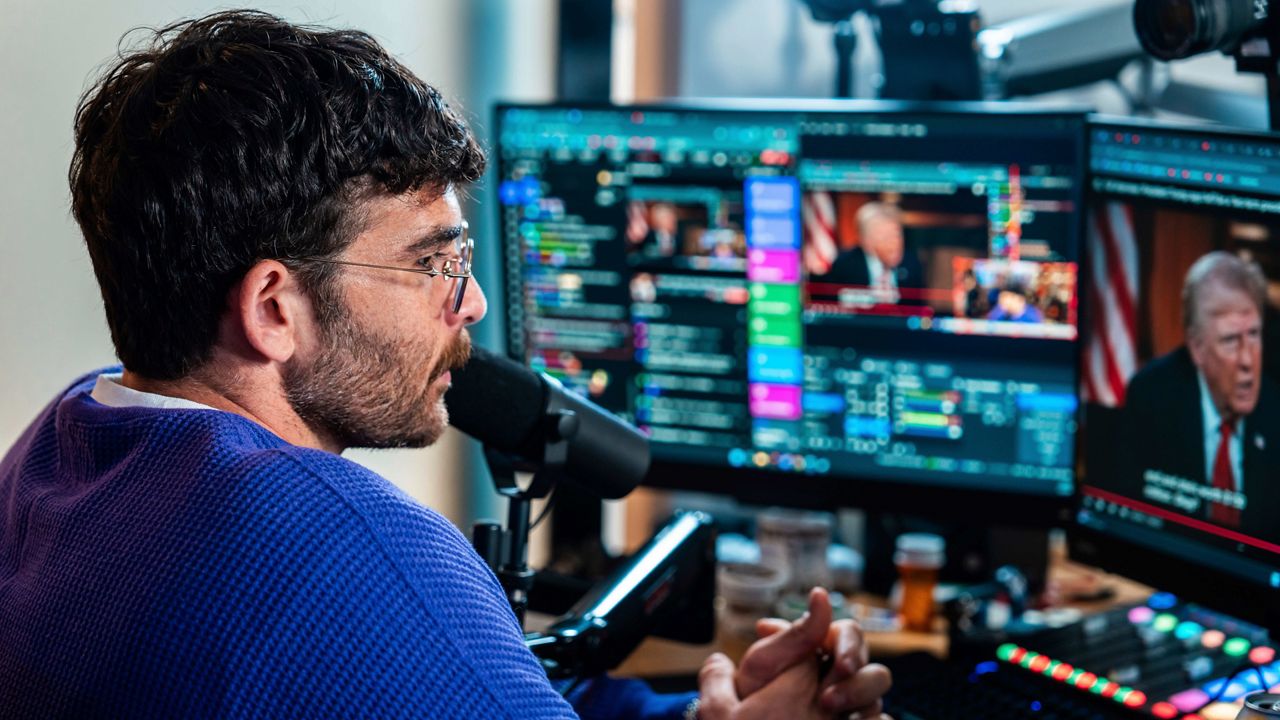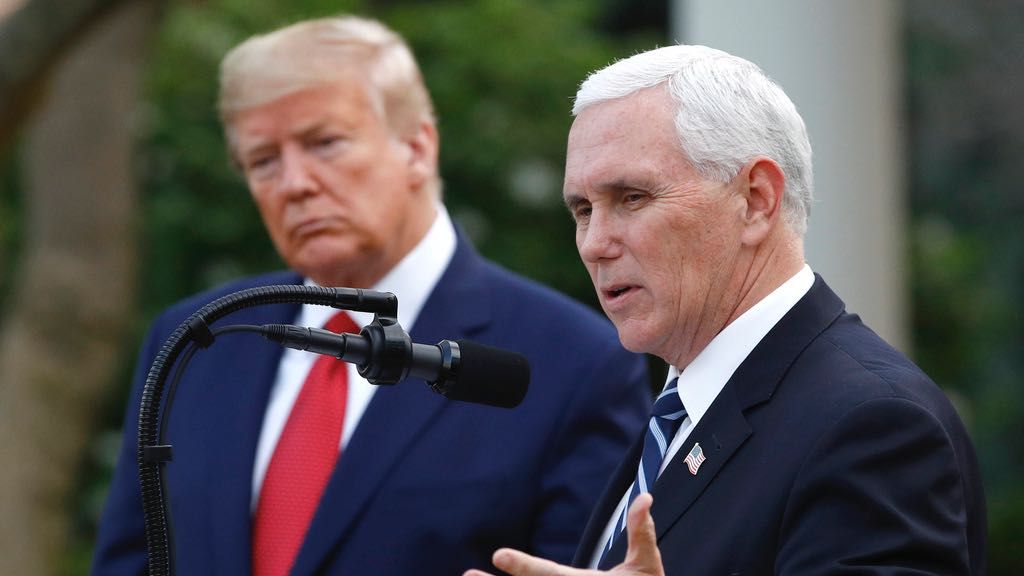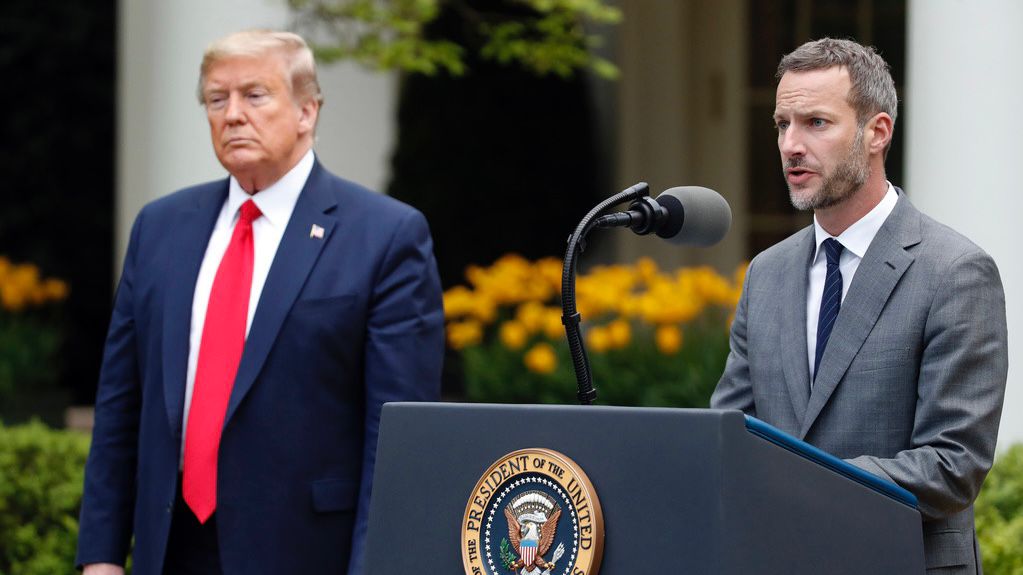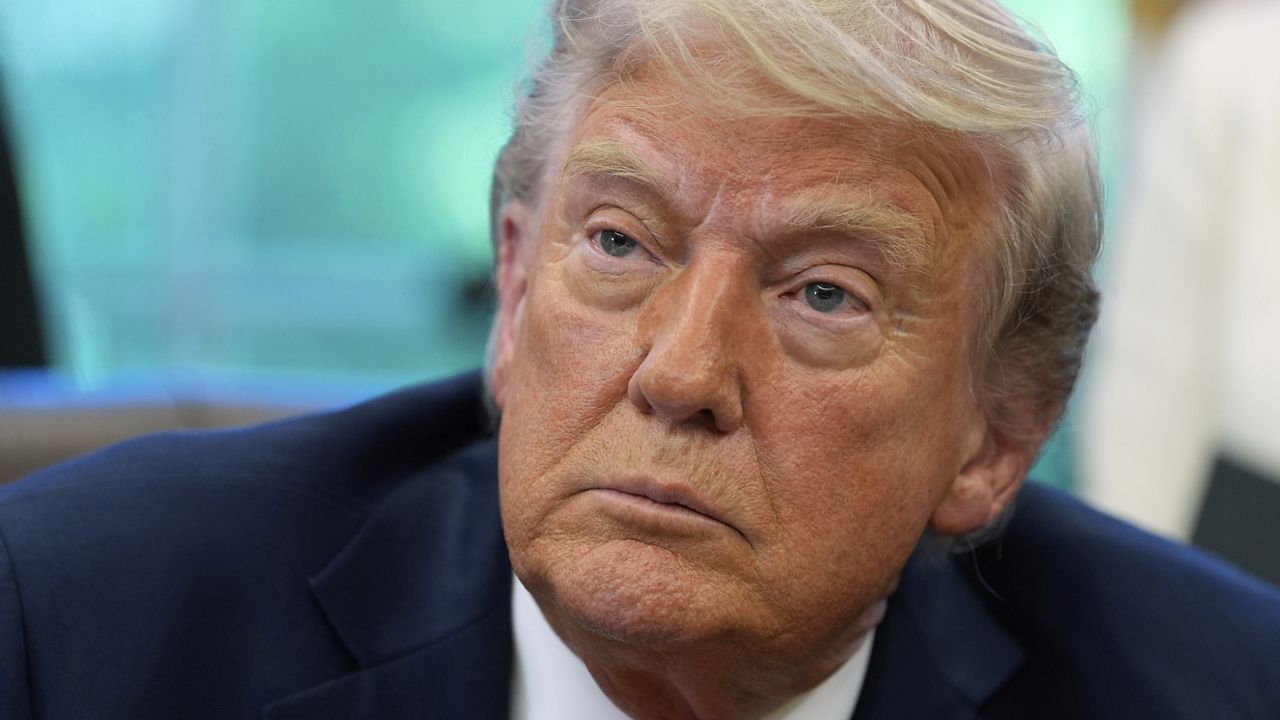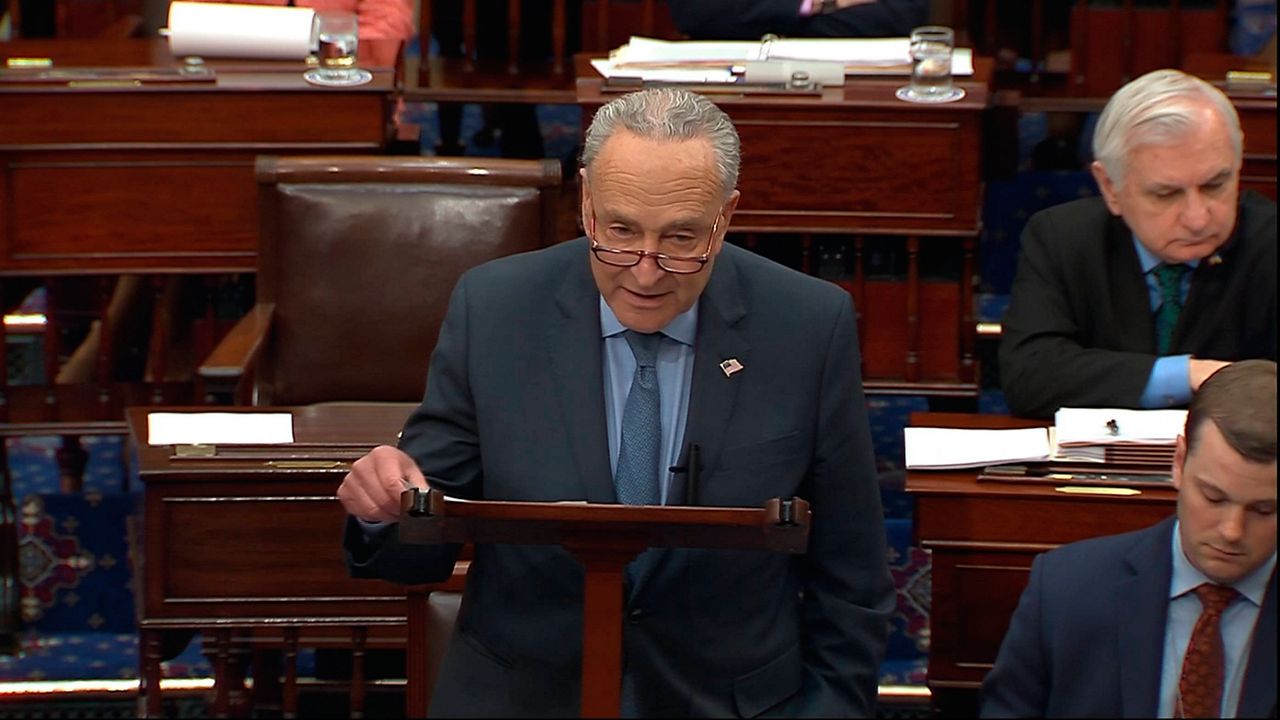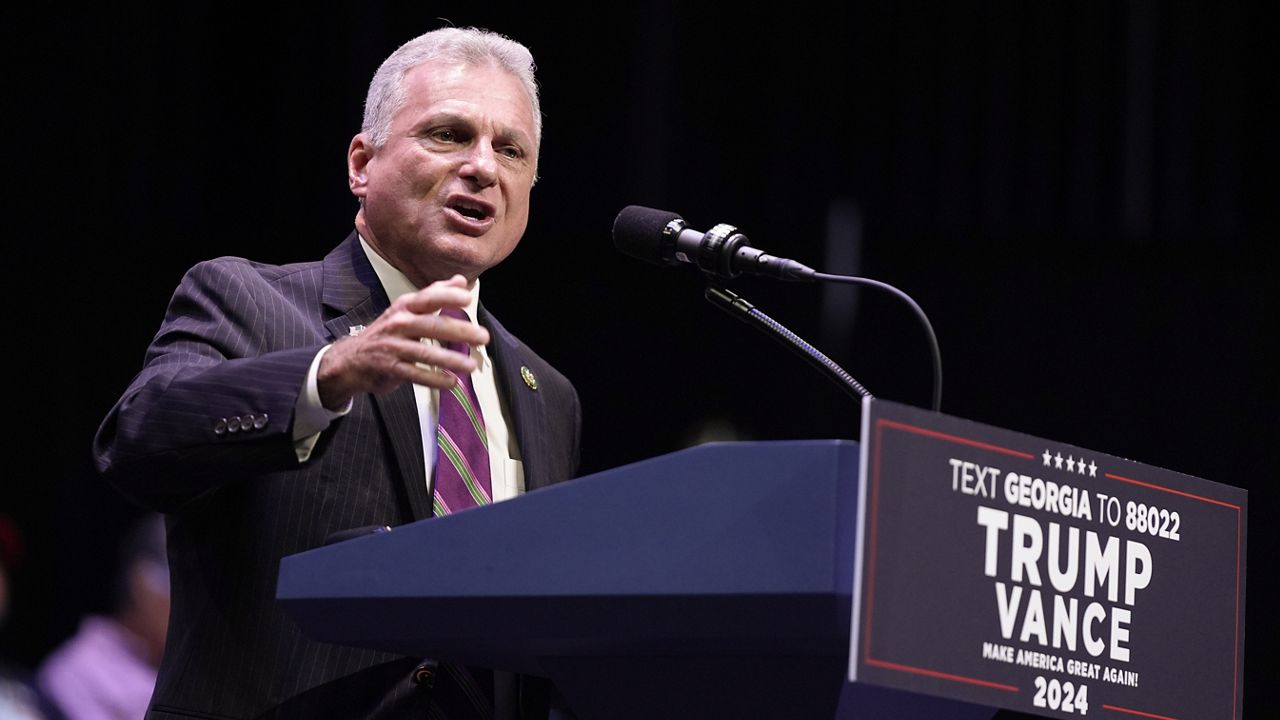A growing swath of states across the country are banning government employees from downloading the TikTok app on government devices, many citing privacy and security concerns that could stem from the video-sharing app.
Some of the pushback against TikTok dates back to former President Donald Trump’s administration, when the president attempted to order a sweeping ban on dealings with the app’s Chinese owners. In 2020, Nebraska Gov. Pete Ricketts was among one of the first state leaders to ban the Chinese app on state government phones
The newly enacted pieces of legislation come as intelligence experts have, in recent months, issued separate warnings surrounding TikTok, owned by Chinese-based company ByteDance. FBI Director Chris Wray previously warned that control of the popular video sharing app is in the hands of a Chinese government “that doesn’t share our values.”
Wray said the FBI was concerned that the Chinese had the ability to control the app’s recommendation algorithm, “which allows them to manipulate content, and if they want to, to use it for influence operations.” He also asserted that China could use the app to collect data on its users that could be used for traditional espionage operations.
Towards the end of last year, the Office of the Chief Administrative Officer notified staff in the U.S. House of Representatives to delete TikTok from all House-managed devices, saying the Office of Cybersecurity has "deemed The TikTok mobile application to be a high risk to users due to a number of security risks."
The massive omnibus spending bill passed by Congress in December also included a provision that would ban TikTok from being used on any government device.
In mid-December, a bipartisan group of lawmakers introduced the “Averting the National Threat of Internet Surveillance, Oppressive Censorship and Influence, and Algorithmic Learning by the Chinese Communist Party Act,” or the “ANTI-SOCIAL CCP Act,” which would force President Joe Biden to "block and prohibit" transactions made by TikTok and its parent company.
While that bill makes its way through Congress, a number of Republican governors – and select Democrats – have taken matters into their own hands, with over half a dozen banning government employees from downloading the app onto government-owned devices. Lawmakers in other states have levied lawsuits against the company, or have encouraged leaders to take action in reducing the app’s reach.
TikTok said in a statement it is “disappointed that so many states are jumping on the bandwagon to enact policies based on unfounded, politically charged falsehoods about TikTok. It is unfortunate that the many state agencies, offices, and universities on TikTok in those states will no longer be able to use it to build communities and connect with constituents.”
Here are the states that are restricting access to TikTok in one form or another:
Alabama’s Republican Gov. Kay Ivey on Monday sent a memo to state agencies saying the use of TikTok would be banned from government-issued devices and from the state network, advising the department heads to “immediately take all necessary steps to prevent TikTok from accessing sensitive state data.”
“After we discussed this with our [Office of Information Technology] secretary, I came to the no-brainer decision to ban the use of the TikTok app on our state devices and network,” Ivey said in a statement to Alabamans, per local news outlets. “Look, I’m no TikTok user, but the evidence speaks for itself, and I want to make sure I’m doing everything we can as a state to stand against this growing security risk.”
Gov. Brian Kemp of Georgia on Dec. 15 banned the use of TikTok and popular messaging applications from all computer devices controlled by their state governments, saying the Chinese government may be able to access users’ personal information.
The Republican governor banned the messaging app WeChat and other apps owned by Chinese firm Tencent as well as Telegram, saying its Russian control poses similar risks.
“The state of Georgia has a responsibility to prevent any attempt to access and infiltrate its secure data and sensitive information by foreign adversaries such as the CCP,” Kemp wrote in a memo, using an acronym for the Chinese Communist Party. “As such, it is our duty to take action to preserve the safety and security of our state against the CCP, entities it controls and other foreign cyberthreats.”
The University System of Georgia soon followed Gov. Brian Kemp’s lead and banned the use of TikTok, WeChat and Telegram on computers and phones owned by the system or any of its 26 universities and colleges.
On Tuesday, Iowa’s Republican Gov. Kim Reynolds issued a directive to the Iowa Department of Management’s Office of the Chief Information Officer, effective immediately, that would not only ban all state-own devices from downloading TikTok, but would also prohibit any state agency from making an account on the app.
“It is clear that TikTok represents a national security risk to our country and I refuse to subject the citizens of Iowa to that risk,” Gov. Reynolds wrote in a statement. “They trust us with their personal and confidential information and we will take every step possible to protect it, including from the Chinese government. The safety of Iowans is my number one priority and that includes their cybersecurity.”
Kansas Gov. Laura Kelly banned the use of TikTok on the state-issued devices of government workers under her control on Wednesday, becoming one of the first Democratic governors to restrict the popular social media app.
Like Republican governors who imposed similar bans, Kelly cited concerns about security and the privacy of users’ data.
Kelly said in a statement: “TikTok mines users’ data and potentially makes it available to the Chinese Communist Party.” Lawmakers have said this includes browsing history and location.
Kelly’s order applies to state executive branch agencies, boards and commissions, but not to state universities, which are overseen by the Kansas Board of Regents. It also doesn’t apply to the Legislature or employees of other statewide elected official, such as the attorney general or secretary of state. Kelly urged all of them to impose restrictions.
Kelly is directing state employees to remove the TikTok app from their government-issued devices. She has directed the state’s information technology office to limit employees’ ability to access TikTok’s website on state devices.
The Bluegrass State has become one of the latest to issue a ban on TikTok on state-issued devices for individuals working for Kentucky's executive branch.
According to a personnel document obtained by Spectrum News, agencies and staff cannot use state IT resources to use TikTok or access the social media platform's website "other than for a law enforcement purpose."
According to a spokesperson for the state's office of public affairs, these changes "have been under consideration for several weeks" and were made based on the recent federal legislation and in conjunction with guidance from federal law enforcement.
"This guidance only applies to state government devices and accounts, and does not apply to personal use on personal devices," the spokesperson said to Spectrum News.
In early December, Maryland Gov. Larry Hogan said his office was banning the use of TikTok and certain China and Russia-based platforms in the state’s executive branch of government, citing an unacceptable cybersecurity risk to the state.
The Republican governor, who is leaving office next month, announced an emergency cybersecurity directive to prohibit the use of the platforms, saying they may be involved in cyber-espionage, surveillance of government entities and inappropriate collection of sensitive personal information.
Under the directive, state agencies must remove any of these products from state networks. Agencies also are required to implement measures to prevent installation of these products, and put in place network-based restrictions to prevent the use of, or access to, prohibited services.
TikTok will be banned from all Mississippi-issued government devices and the state’s network, Gov. Tate Reeves announced on Jan. 11 in a letter to department and agency heads.
The Republican said he issued the directive to safeguard sensitive information from the popular social media app, which is owned by private Chinese company ByteDance Ltd. The app’s ownership has raised fears that Beijing could use it to scoop up user data or push pro-China narratives or misinformation.
Reeves cited concerns over “extensive tracking of user data and the potential access and transfer of this data to the Chinese government.”
“It’s no secret that the Chinese Communist Party is actively trying to steal U.S. intellectual property and Americans’ personal information,” Reeves said in a news release. “Mississippi isn’t going to sit around waiting for the Chinese Communist Party to steal our state government data.”
Gov. Chris Sununu of New Hampshire on Dec. 15 immediately banned the use of TikTok and popular messaging applications from all computer devices controlled by their state governments, saying the Chinese government may be able to access users’ personal information.
The Republican governor banned the messaging app WeChat and other apps owned by Chinese firm Tencent as well as apps owned by Chinese firm Alibaba and telecommunications hardware and smartphones made by Chinese firms including Huawei and ZTE.
Sununu said the ban “will help preserve the safety, security, and privacy of the citizens of New Hampshire.”
Sununu ordered state agencies to remove any prohibited software or hardware within 30 days.
North Carolina Gov. Roy Cooper, a Democrat, on Thursday ordered the state’s Department of Information Technology and Chief Information Officer to create a policy within 14 days that will ban TikTok, WeChat and “potentially other applications” on state-owned technologies, the governor’s office wrote in a statement.
“It’s important for us to protect state information technology from foreign countries that have actively participated in cyberattacks against the United States,” Cooper wrote in a statement. “Protecting North Carolina from cyber threats is vital to ensuring the safety, security, privacy, and success of our state and its people.”
Cooper said the policy could be updated in the future to include other applications should they be “identified by state cybersecurity experts” as posing cybersecurity threats to the United States.
North Dakota Gov. Doug Burgum banned the popular social media app TikTok from devices owned by the state government’s executive branch.
Burgum announced the executive order late Tuesday. In addition to prohibiting downloads of TikTok on government-issued equipment or while connected to the state’s network, it bars visiting the TikTok website.
“Protecting citizens’ data is our top priority, and our IT professionals have determined, in consultation with federal officials, that TikTok raises multiple flags in terms of the amount of data it collects and how that data may be shared with and used by the Chinese government,” Burgum said in a statement. “Reducing this security risk is the right thing to do, and we would offer [North Dakota Information Technology]'s support to assist and advise any partner entities that wish to pursue similar measures.”
State workers in Ohio will be banned from using TikTok, WeChat and other Chinese-owned social media apps on state-issued devices over concerns that sensitive personal information and business data collected by those platforms may be shared with the Chinese government.
The ban was one of several executive orders signed by Republican Gov. Mike DeWine on Sunday shortly after he was privately sworn in for his second term. It will prohibit state agencies, boards and commissions from using social media platforms whose owners are in China.
Last week, South Carolina Gov. Henry McMaster requested that the Department of Administration, which manages all state government-issued devices, remove TikTok and block access from all cell phones, computers and other electronic devices.
“Protecting our State’s critical cyber infrastructure from foreign and domestic threats is key to ensuring the health, safety, and well-being of our citizens and businesses,” McMaster added. “Federal law enforcement and national security officials have warned that TikTok poses a clear and present danger to its users, and a growing bi-partisan coalition in Congress is pushing to ban access to TikTok in the United States.”
In late November, South Dakota Gov. Kristi Noem was one of the first state leaders this year to issue an executive order banning state employees and contractors from accessing the video platform TikTok on state-owned devices, citing its ties to China.
“The Chinese Communist Party uses information that it gathers on TikTok to manipulate the American people, and they gather data off the devices that access the platform,” Noem said in a statement.
Texas Gov. Greg Abbott last year banned the use of TikTok on government-issued devices across all state agencies, saying the order came amid the threat of the Chinese Communist Party gaining increased access to important U.S. information and infrastructure.
“TikTok harvests vast amounts of data from its users’ devices—including when, where, and how they conduct Internet activity—and offers this trove of potentially sensitive information to the Chinese government,” Abbott wrote in a letter to state leaders.
“While TikTok has claimed that it stores U.S. data within the U.S., the company admitted in a letter to Congress that China-based employees can have access to U.S. data. It has also been reported that ByteDance planned to use TikTok location information to surveil individual American citizens,” the letter continued.
State agency leaders are required to ban officers and employees from downloading or using TikTok on government-issued devices, including cell phones, laptops, tablets, and other devices that can connect to the internet.
In early February, Gov. Abbott took the measures against TikTok a step further than his other state counterparts, announcing that all state agencies would be required to ban the app from technologies including phones, laptops and tablets.
Agencies will have until Feb. 15 to implement their own policies before the statewide ban goes into effect.
“The security risks associated with the use of TikTok on devices used to conduct the important business of our state must not be underestimated or ignored,” Gov. Abbott wrote in the announcement, later adding: “It is critical that state agencies and employees are protected from the vulnerabilities presented by the use of this app and other prohibited technologies as they work on behalf of their fellow Texans.”
Other prohibited apps were included in a model plan published by the governor Monday, including Kaspersky, TikTok’s parent company, ByteDance Ltd., Alipay, WeChat, WeChat Pay and others.
Utah Gov. Spencer Cox, a Republican, on Monday issued an order banning state government employees from downloading TikTok on their state-owned electronic devices, or from visiting the TikTok website.
“China’s access to data collected by TikTok presents a threat to our cybersecurity,” Gov. Cox wrote in a statement. “As a result, we’ve deleted our TikTok account and ordered the same on all state-owned devices. We must protect Utahns and make sure that the people of Utah can trust the state’s security systems.”
The order takes effect immediately.
Virginia Gov. Glenn Youngkin banned the use of several Chinese-owned apps, including TikTok and WeChat, on state government devices and wireless networks on Dec. 16, calling them a threat to national security.
Youngkin’s executive order covers apps developed by ByteDance and Tencent. Businesses who contract with Virginia must also prohibit their use on state-owned devices or IT infrastructure.
“TikTok and WeChat data are a channel to the Chinese Communist Party, and their continued presence represents a threat to national security, the intelligence community, and the personal privacy of every single American,” Youngkin, a Republican, said in a statement. “We are taking this step today to secure state government devices and wireless networks from the threat of infiltration and ensure that we safeguard the data and cybersecurity of state government.”
TikTok spokesperson Jamal Brown said in an emailed statement that it was “disappointing that states and some federal officials are promoting falsehoods to ban the platform instead of advancing sound policies to promote U.S. national security interests.”
“Millions of Americans rely on TikTok to grow their small businesses, reach new audiences, and make their livelihoods,” Brown said.
Wisconsin on Thursday became the latest state to ban the use of TikTok on state phones and other devices, a move that comes after nearly half of the states nationwide have blocked the popular social media app owned by a Chinese company.
Democratic Gov. Tony Evers ordered the ban after he said he consulted with the FBI and emergency management officials. He cited potential risks to privacy, safety and security. Evers’ order applies to most state agencies, with some exceptions like criminal investigators who may be using the app to track certain people.
“Defending our state’s technology and cybersecurity infrastructure and protecting digital privacy will continue to be a top priority,” Evers tweeted when he announced the ban.
The University of Wisconsin System, which employs 40,000 faculty and staff, is also exempt. But UW System spokesperson Mark Pitsch said despite the exemption, the university was conducting a review and moving toward placing restrictions on the app being used on devices in order to protect against serious cybersecurity risks.
The ban will be enforced by the state’s technology division, which already restricts what apps state employees can access on their government phones.
Only about 12 state phones have TikTok on them, according to Evers.




